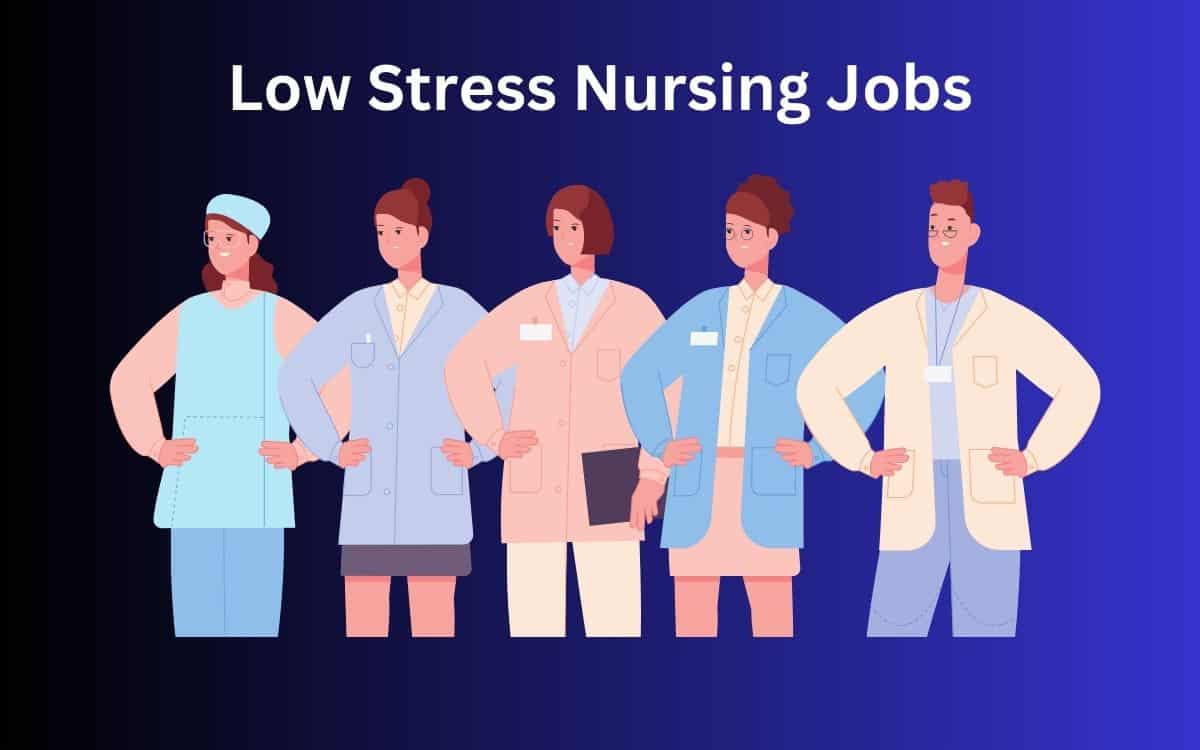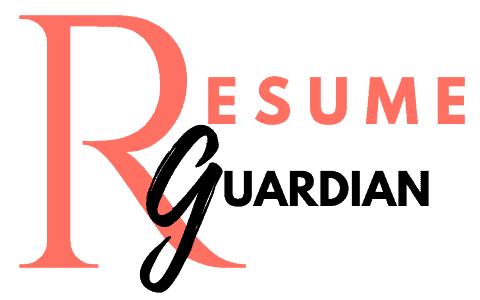
If you are considering a career in nursing but are concerned about stress, you’re not alone. Nursing can be demanding, but it doesn’t have to be overly stressful. In fact, some nursing positions offer lower-stress environments.
This blog post will examine 10 of the least stressful nursing jobs available. We’ll explain what each nursing career involves and why it may appeal to those looking for a less stressful nursing role. Read on to learn about great nursing opportunities with less burnout.
No nursing job will ever be completely stress-free. But choosing the right specialty does make a difference in a nurse’s quality of life and career longevity. If you are considering nursing or transitioning as an RN, keep these lower-stress careers in mind
Key Takeaways on Low Stress Nursing Jobs
Why Consider a Less Stressful Nursing Career?
Nursing is often regarded as a stressful occupation. The challenges include long shifts, staff shortages, demanding workloads and constant patient needs. This has contributed to high burnout rates, with around two-thirds of nurses (62%) reporting burnout symptoms.
However, nursing doesn’t have to be overly stressful. The right nursing position can provide fulfillment without excessive stress and fatigue. This leads to greater career longevity and a more sustainable work-life balance for nurses.
If you are an aspiring or current nurse looking to transition into a lower-stress role, know you have options. We’ve compiled this list of 10 rewarding yet less stressful nursing careers to consider.
1. School Nurse

School nursing is consistently ranked among the top low stress nursing jobs.
As a school nurse, you would be responsible for the healthcare needs of students and staff. This includes managing chronic conditions, administering medications, providing first aid and promoting health.
Unlike hospital nurses, school nursing allows for more predictable hours and schedules. School nurses enjoy weekends, summers, and holidays off. The pace may be slower than in hospitals, with less exposure to crises and emergencies.
Requirements: RN license, BSN degree, school nurse certification in some states
2. Nurse Educator

Do you enjoy teaching and training others? Nurse education offers the chance to shape the next generation of nurses without direct patient care stress.
Nurse educators develop nursing curricula, teach classes, train nursing students in labs/clinics and may oversee nursing programs.
Their work schedule revolves around the academic calendar, allowing for extended breaks. While grading and exams add some pressure, most nurse educators find it less stressful than bedside hospital nursing.
Requirements: RN license, MSN degree, teaching experience
3. Occupational Health Nurse

Occupational health nurses care for the workforce of various companies and organizations. They promote wellness, manage workplace injuries and illnesses and prevent health hazards.
Occupational health nursing is best suited for nurses who want a Monday-Friday, 9-to-5 type of position. It removes the need to work evenings, nights, or holidays. Occupational health nurses enjoy consistent schedules and hours, limiting burnout.
Requirements: RN license, BSN degree, occupational health certification
4. Home Health Nurse

Home health nursing involves providing skilled nursing care to patients in their homes. As a home health nurse, you would travel to patients’ houses and coordinate their care after hospitalization.
Compared to hectic hospitals, home health offers a more relaxed pace. Nurses get to avoid the controlled hospital environment and focus on one patient at a time. Cases are often less complex, allowing for less stressful nursing duties.
Requirements: RN license, BSN degree, home health certification
5. Nursing Informatics
Nursing informatics combines information technology and science with nursing knowledge. Informatics nurses may design, implement and manage computer systems to store and analyze healthcare data.
With minimal direct patient contact, nursing informatics eliminates much of the stress of bedside care. Informatics nurses get to solve complex problems and improve healthcare delivery through technology. It’s an innovative career path for tech-savvy nurses.
Requirements: RN license, BSN or MSN degree, IT skills
6. Public Health Nurse
Public health nurses aim to promote the well-being of entire communities and populations. They focus on health education, disease prevention, disaster response and connecting people with care.
This population health approach comes with lower stress than treating individual patients. Public health nurses get to make a broad impact through community programs and interventions. It can be rewarding if you’re passionate about community health.
Requirements: RN license, public health certification
7. Nurse Administrator

Nurse administration offers managerial challenges without direct patient care for nurses who want to lead and manage nursing staff. Nurse administrators oversee nursing units or departments and implement policies.
The workload and responsibilities of nurse administrators differ from bedside nursing. While still demanding, the administrative nature of the work makes it less stressful on the body. Nurse administrators work more traditional weekday hours as well.
Requirements: RN license, BSN or MSN degree, leadership experience
8. Clinic Nurse
Clinic nurses work in outpatient settings like doctors’ offices, health clinics, and specialty clinics. They provide ambulatory care, patient education, and assistance with procedures and exams.
In clinics, nurses enjoy consistent daytime hours and a slower, more manageable pace than in hospitals. Clinic nursing also limits exposure to complex health crises contributing to hospital nurse burnout. For a lower-key nursing option, clinic nursing has appeal.
Requirements: RN license, ambulatory/clinic nursing experience
9. Nurse Researcher
Nurse researchers apply scientific methods to improve nursing care and advance healthcare knowledge. They develop studies, collect and analyze data, publish findings, and educate others on evidence-based practice.
For inquisitive nurses who enjoy research, this career allows you to find nursing solutions and innovations without direct patient care stress. The pace is slower and more predictable than at the bedside, focusing on thought-provoking projects.
Requirements: RN license, MSN or doctoral nursing degree
10. Nursing Informatics Specialist

A nursing informatics specialist manages technology systems that store and protect patient health information. This includes maintaining records security, troubleshooting IT issues, and training staff on electronic systems.
With a technology focus, nursing informatics specialists avoid the high-pressure environments of hospital nursing.
The work aims to improve care through optimized information systems and data analysis. Both the technical nature of the role and traditional hours contribute to lower stress levels.
Requirements: RN license, BSN or MSN degree, IT certification
Also Read: How To Become An Ultrasound Technician: Unlocking Your Future
Frequently Asked Questions
What Are the Easiest Nursing Jobs?
Some of the most accessible nursing jobs for lower stress include school nursing, occupational health nursing, and clinic nursing.
These positions offer more regular hours and predictable schedules. The workload also tends to be more manageable than hospital nursing.
What Are the Least Stressful Nursing Jobs?
Consistently reported low-stress nursing careers include:
- School Nursing
- Nurse Education
- Occupational Health
- Nursing Informatics
- Clinic Nursing and
- Public health nursing.
These specialties minimize crises, urgent care, emergencies, and heavy workloads.
Is Home Health Nursing Stressful?
Home health nursing is generally less stressful than hospital or long-term care nursing.
Home health nurses typically care for fewer patients at once and have autonomy over scheduling. But challenges like frequent driving and isolated work make it moderately stressful.
Is School Nursing Stressful?
School nursing is one of the least stressful fields due to having summers off, minimal emergencies, and lower nurse-to-patient ratios.
However, school nurses may face stress from limited resources, discipline issues, or communication with parents. Overall, school nurses report lower burnout.
What Nursing Has the Least Patient Contact?
Nurses with the least direct patient contact include Informatics nurses, Nurse researchers, and Nurse administrators.
These roles focus on technology, research, education or leadership rather than bedside care. Public health and occupational health nurses also have minimal patient contact.
Final Thoughts
If you are considering a career in nursing but want to minimize stress, several options are available. This blog post has highlighted 10 low-stress nursing jobs that can provide a fulfilling work experience.
From school nursing to nurse education to occupational health nursing, various specialties offer predictable schedules, reduced patient loads, and alternative challenges to bedside care. Additionally, roles such as nursing informatics and nurse research allow for a focus on technology and research, alleviating direct patient stress.
While no nursing job is completely stress-free, choosing the right specialty can significantly improve a nurse’s quality of life and career longevity. Consider these lower-stress nursing careers as you pursue your nursing journey.






